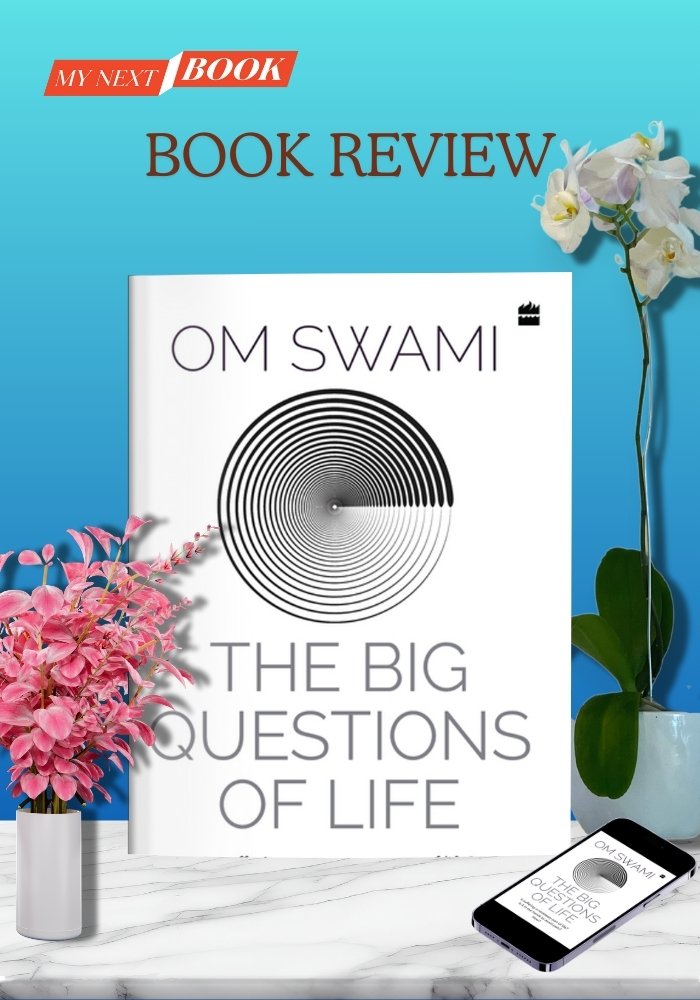Introduction to the Book
The Big Questions of Life’ offers a profound exploration of existence that cuts through the noise of everyday life. Om Swami, with his clear and engaging style, delves into the essence of our fleeting existence, our ongoing quest for identity, and the freedom embedded in our choices. Through personal anecdotes and accessible examples, he unpacks these complex themes, making them relatable and actionable. Each chapter builds on the last, inviting readers to navigate the intricate and beautiful maze of life, revealing insights that resonate with those seeking deeper understanding of themselves and the world around them.
Transient Nature of Life
The book opens with a poignant meditation on impermanence. Om Swami reflects, ‘Our childhood, adolescence, youth, old age, all phases pass…This is samsara cyclical and transient.’ This quote isn’t just a reminder of life’s phases, it serves as a profound call to action. Swami encourages us to see life’s inevitable changes not as losses but as transformations, urging us to find peace in this eternal cycle. He weaves personal anecdotes with philosophical insights, making the concept of impermanence not only accessible but deeply relatable.
Exploration of Self and Identity
In his exploration of self and identity, Om Swami guides us inward, challenging the very foundations upon which we build our self-concept. With narrative flair, he dissects how societal labels and expectations often confine us and offers enlightening dialogues to help us break free from these bonds. By advocating for a journey of self-exploration, Swami provides readers with practical steps to uncover the ‘true self’ beneath the constructed facade. Each chapter serves not just as a discussion but as an invitation to a deeper self-discovery.
Purpose and Meaning
Om Swami explores the quest for purpose and meaning with the premise that finding one’s true calling is not about reaching a destination but about crafting a journey. He posits that purpose emerges through mindful living and deep introspection. Throughout this segment, Swami provides readers with a practical toolkit ranging from meditation techniques to daily reflective practices designed to foster a personal sense of direction. He emphasizes that the true value in our quests lies not in the achievements but in the growth and insights we gain along the way.
Subjectivity of Morality
In discussing morality, Om Swami presents a nuanced perspective that challenges the notion of universal moral absolutes. Instead, he champions a personalized moral code, one that evolves from individual experiences and insights. Swami enriches this discussion with diverse philosophical arguments and real-world scenarios that demonstrate how such tailored ethics enhance empathy and understanding in complex social interactions. He argues that when individuals craft their moral compass based on personal context rather than imposed norms, they cultivate a deeper, more compassionate worldview.
Freedom and Responsibility of Choices
The narrative then delves into the profound impact of our choices, underscoring how decisively they can steer our destinies. Om Swami emphasizes, ‘It is our ability to make choices that sets us apart from other creatures,’ highlighting the unique human capacity for self-determination. This powerful statement serves as a springboard into a discussion about the weight of our decisions. Swami advises readers to approach choices with mindfulness, understanding that each decision molds our future. He outlines both the liberating potential of wise choices and the burdens that come with reckless ones, providing a balanced perspective on navigating life’s crossroads.
Personal Reflections and Insights
As I journeyed through ‘The Big Questions of Life,’ I was captivated by the simplicity with which Om Swami conveyed complex ideas. His insights forced me to examine my own life under a microscope, especially my daily habits and long-term choices. For instance, reflecting on his discussions around choice and consequence led me to reconsider my approach to work-life balance. I realized I had been prioritizing short-term gains over long-term wellbeing. Inspired by Swami’s teachings, I started carving out more time for reflection and family, which has profoundly enriched my sense of personal fulfillment. This book not only mirrored the aspects of my life that needed change but also provided the clarity to act upon them.
The Strengths and Weaknesses of the Book
One of the most compelling strengths of ‘The Big Questions of Life’ is its ability to render profound spiritual teachings into terms anyone can understand. For instance, Om Swami’s explanation of the concept of ‘karma’ as more than just cause and effect, but as a deeply intertwined part of one’s intentions and everyday actions, showcases his skill in demystifying complex ideas.
However, the book isn’t without its shortcomings. While it excels in outlining philosophical and spiritual principles, it sometimes leaves the reader craving more concrete, real-world applications of these teachings. For example, while the discussion on ‘detachment’ is enlightening, the book would greatly benefit from additional practical examples of how to implement this concept in daily routines, such as managing stress at work or in personal relationships. A more thorough exploration of how these spiritual principles can be practically applied in various life situations could significantly enhance its impact and relevance.
Applying Concepts in Real Life
The principles from ‘The Big Questions of Life’ are not just theoretical, they’re designed for everyday application, influencing everything from how we make decisions to how we view our personal identities. For instance, the concept of ‘making conscious choices’ can transform our approach to career planning and personal relationships. By pausing to reflect on the long-term implications of our decisions, as suggested by Om Swami, we cultivate a more deliberate and thoughtful life path.
Understanding the ‘fluidity of identity’ is another profound principle that can help us adapt to life’s inevitable changes whether that’s shifting career paths, evolving family roles, or personal growth. Swami advocates for regular self-reflection and meditation as practical tools to embrace this fluidity, allowing us to meet life’s challenges with flexibility and resilience.
To truly implement these insights, a shift towards mindfulness is essential. This doesn’t mean constant meditation, but rather, cultivating an ongoing awareness of our thoughts and reactions. Swami suggests starting small: dedicating a few minutes each day to sit quietly, observe our thoughts without judgment, and gradually extend these practices into regular activities. This mindful approach enables us to navigate life’s uncertainties with grace and wisdom, transforming philosophical understanding into a lived experience.
Final Thoughts
The Big Questions of Life’ by Om Swami transcends the conventional book format, offering itself as a profound journey and a meditative companion on the essence of existence. Each page not only presents timeless wisdom but also engages the reader in a deep, personal exploration of life’s pivotal questions. Whether you’re delving into spirituality or simply exploring deeper existential themes, this book serves as a robust guide, illuminating paths less traveled with clarity and insight.
What sets this book apart is how it challenges readers to confront their preconceptions, comforts them with compassionate wisdom, and guides them with practical insights into embracing life’s uncertainties. For instance, its discussion on ’embracing the present’ encourages a mindfulness that can profoundly alter everyday experiences and decisions.
As Om Swami succinctly puts it, ‘Now is the only living moment, the only true moment in which life actually exists in its entirety.’ This call to embrace the present isn’t just philosophical advice, it’s a practical invitation to live more fully, aware of the richness of each moment. ‘The Big Questions of Life’ is not merely read, it’s experienced, offering each reader unique insights while resonating with the universal quest for meaning. Let this book be your guide as you explore the vast landscape of your inner life and discover the joys of living in the now.






